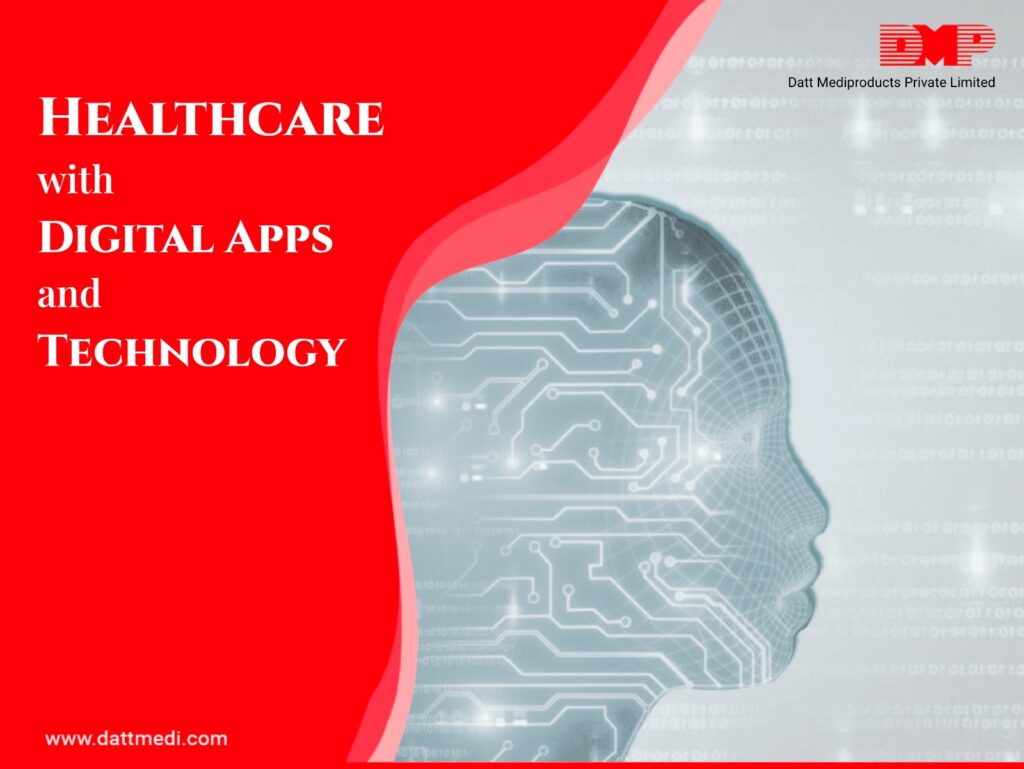
Digital Health is a concept of using technology to help improve health and wellness. It refers to the conjunction of information technologies and various communication tools with health and society, in order to enhance the efficiency of healthcare delivery by providing more precise and personalized services.
Digital Health is a broad and a growing sector which includes different stakeholders like clinicians, patients, researchers, scientists, from multiple disciplines like healthcare, public health, data management, information technology, engineering, etc.
How the Digitalization of Healthcare Sector Helpful?
The various digital technologies in the healthcare sector include smartphones, mobile apps, internet apps, email, text messages, web-based analysis, wearable devices, monitoring sensors, and social networks. The use of these technologies in healthcare is offering different innovative ways to monitor the user’s health & well-being by providing broader access to individuals’ data. Digitalization has not only changed the way we communicate but has also strengthened the connection between people, technology and information.
Following digitalization, the various healthcare outcomes can be improved:
– Reduce Inefficiencies: Digitalization has helped to better manage the patient’s data, eradicating gaps in data control and loss of valuable documents, thus reducing inefficiencies in handling confidential patient information.
– Improve Access: Both clinicians and patients can have better access to their data as digitalization have made easy the sorting, scanning, and indexing of the documents.
– Reduce Costs: By helping the individuals to improve their lifestyle and maintain good health, digitalization could reduce the total cost of an individual’s healthcare over their lifetime.
– Increase Quality of Care: Digital health technologies help people identify new illness and changes in the existing ones. Thus, enabling the clinicians to start the treatment early during the course of the disease and thereby shortening it and improving the quality of care and life.
Digital Health helps individuals, both patients or consumers, to better track and manage health and wellness related activities.
“Be He@lthy, Be Mobile” is an innovative partnership between the WHO and ITU (International Telecommunication Union) which uses mobile technology to combat noncommunicable diseases (NCDs).
For instance, a program named ‘mCessation’ has been developed by the Ministry of Health and Family Welfare and the Ministry of Communication and Information Technology in India to support tobacco users to quit tobacco by motivating and supporting the registered participants through mobile text messages.
Should we be concerned about Healthcare Digitalization?
Although data collected by the digital health apps may be fruitful for researchers who are trying to improve health, there might be some concerns associated with digitalization of the industry.
1. The concerns are obvious because these apps are dealing with sensitive health data. For these apps to be useful, they need a lot of data covering a range of age groups, gender, backgrounds, income groups, and medication status.
2. “Inaccuracy” in the system is another matter of concern which may lead to individuals’ misdiagnosed with a disease. Unnecessary doctor visits may be involved, expenditures on lab tests may increase. On the contrary, there might be those patients who are diagnosed as fit by the health apps, resulting in a delay in their doctor visit and subsequent necessary treatment.
Quick & Important Notes:
Although digitalization has been very informative for our lives, it’s challenging for individuals to keep their children away from the digital entertainment media. Doctors @ Mayo Clinic and the American Heart Association (AHA) say that too much screen time may interfere with the sleep of children, increase the risk of depression, and obesity.
1. Doctors recommend the screen time of one hour or less per day for children between age groups 2-5 years.
2. For children more than 5 years this enjoyment related screen time should be minimized to 2 hours or less per day.
Some Tips:
– Media-Free Zones: To curb the negatives of digitalization, people can create media-free zones like bedrooms or dining table in their homes. This is going to be helpful for both themselves and their children.
– Media-Free Time: Even they can extend this to limit the time usage and setting media-free times every day.
– Interact: Parents can increase their interaction with children. They can put down their electronic devices especially when they are with their children. Talking to them, engaging them in physical activities and showing interest in their matters could be of great help.
We understand that the digitalization of healthcare industry has been beneficial for the patients by helping them to better monitor and track their health conditions. In 2017, the FDA launched a Digital Health Action Plan to speed up digitalization and implementing legislation of various digital health products. Follow us @Datt Mediproducts for more information on digital edge technologies transforming our lives.
Be Digital, Be Healthy!




